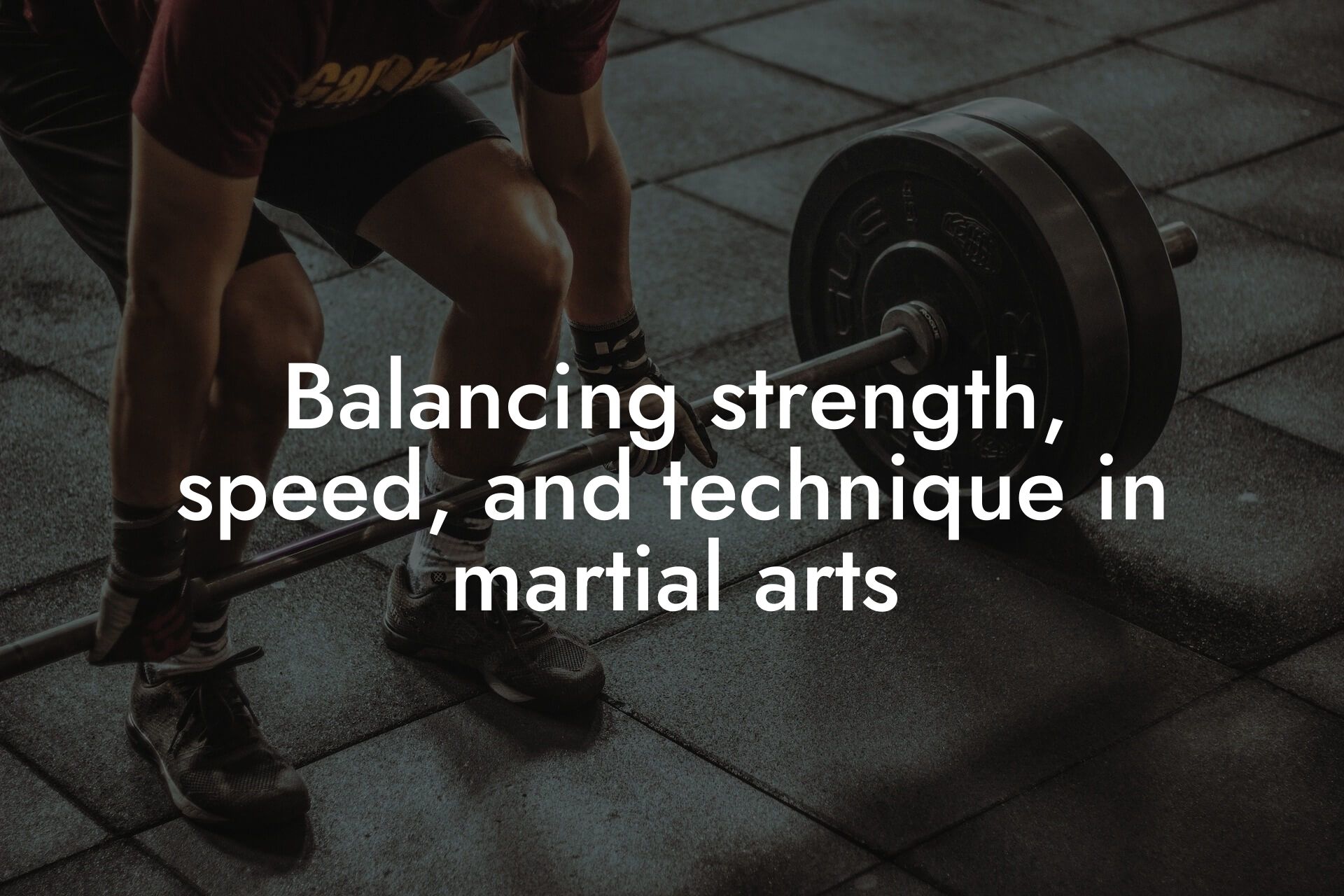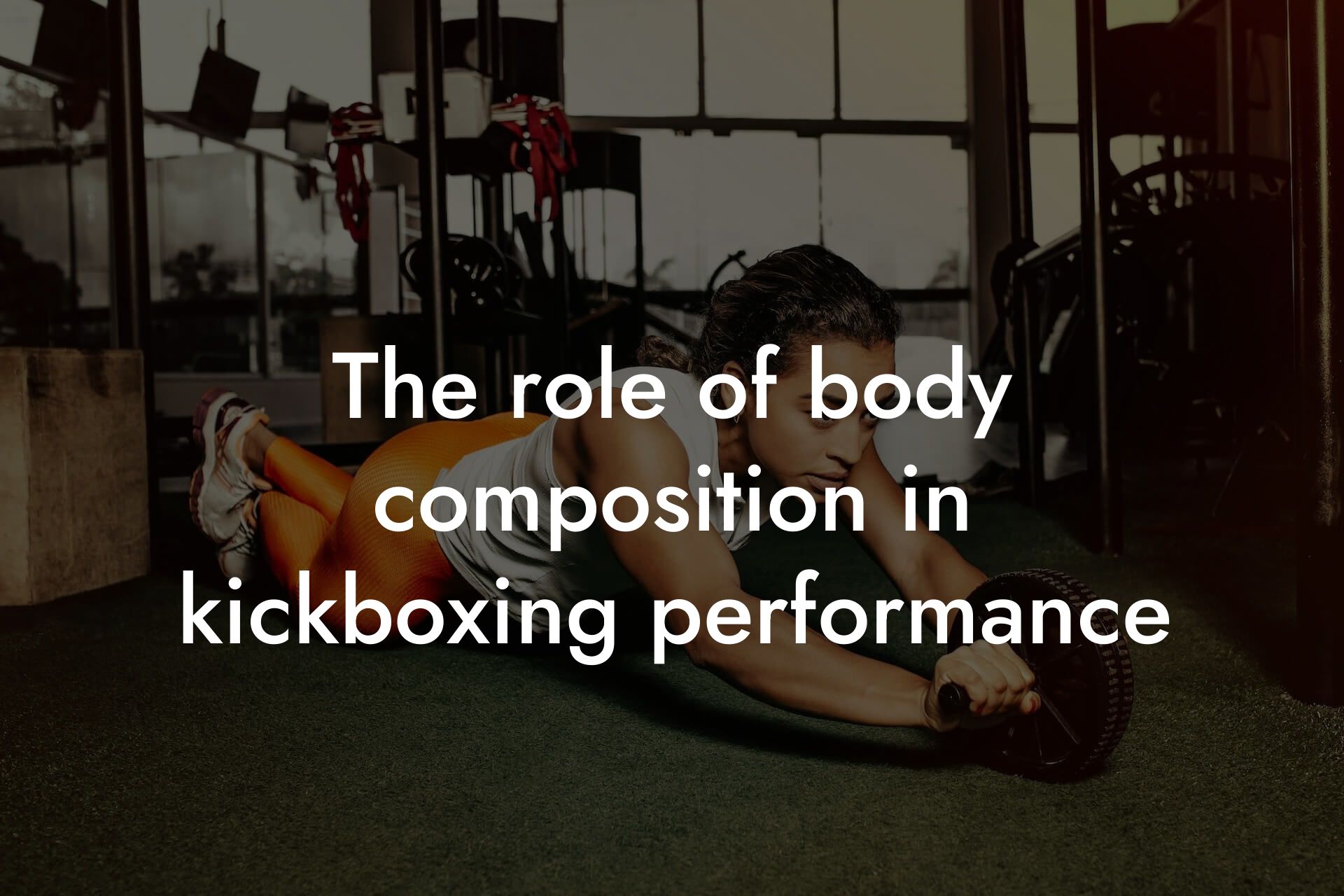As a high-earning professional, you understand the importance of maintaining a strong and healthy physique. Engaging in martial arts is an excellent way to improve your physical appearance, body fat percentage, and overall well-being. However, it's crucial to focus on maintaining muscle mass and flexibility to optimize your performance and reduce the risk of injuries. In this article, we'll delve into the importance of muscle mass and flexibility in martial arts, and provide you with practical tips and strategies to help you achieve your goals.
Table of Contents
- Why Muscle Mass Matters in Martial Arts
- The Importance of Flexibility in Martial Arts
- Factors Affecting Muscle Mass and Flexibility in Martial Arts
- Strategies for Maintaining Muscle Mass in Martial Arts
- Strategies for Improving Flexibility in Martial Arts
- Sample Workout Routine for Maintaining Muscle Mass and Flexibility in Martial Arts
- Get a Comprehensive Body Assessment with Tano Performance Group
- Frequently Asked Questions
Why Muscle Mass Matters in Martial Arts
Muscle mass plays a vital role in martial arts, as it directly impacts your power, speed, and endurance. Having adequate muscle mass helps you to generate force, absorb impact, and maintain good technique. Additionally, muscle mass helps to support your joints, reducing the risk of injuries and improving overall performance. In martial arts, muscle mass is particularly important for generating explosive power, quick movements, and maintaining a strong stance.
The Importance of Flexibility in Martial Arts
Flexibility is another critical component of martial arts training. It allows for a full range of motion, enabling you to execute techniques efficiently and effectively. Good flexibility also reduces the risk of injuries, as it helps to absorb impact and reduces muscle tension. In martial arts, flexibility is essential for executing complex movements, such as kicks, punches, and throws.
Factors Affecting Muscle Mass and Flexibility in Martial Arts
Several factors can affect muscle mass and flexibility in martial arts, including:
- Age: As we age, our muscle mass and flexibility naturally decline.
- Genetics: Genetic factors can influence our muscle mass and flexibility.
- Nutrition: A diet lacking essential nutrients can impede muscle growth and flexibility.
- Training: Inadequate or inconsistent training can lead to muscle imbalances and reduced flexibility.
- Injuries: Injuries can cause muscle atrophy and reduced flexibility.
Strategies for Maintaining Muscle Mass in Martial Arts
To maintain muscle mass in martial arts, focus on the following strategies:
- Progressive Overload: Gradually increase the intensity of your training by adding weight, reps, or sets to challenge your muscles.
- Periodization: Alternate between high-intensity and low-intensity training phases to avoid plateaus and promote muscle growth.
- Nutrition: Consume a balanced diet rich in protein, complex carbohydrates, and healthy fats to support muscle growth and recovery.
- Rest and Recovery: Adequate rest and recovery are crucial for muscle growth and repair. Ensure you get 7-9 hours of sleep and take rest days as needed.
Strategies for Improving Flexibility in Martial Arts
To improve flexibility in martial arts, focus on the following strategies:
- Stretching: Incorporate static and dynamic stretching exercises into your training routine, focusing on major muscle groups such as hamstrings, quadriceps, and hip flexors.
- Foam Rolling and Self-Myofascial Release: Use foam rolling and self-myofascial release techniques to improve muscle relaxation and reduce muscle tension.
- Active Isolation Stretching: Use active isolation stretching techniques to target specific muscle groups and improve range of motion.
- Yoga and Pilates: Incorporate yoga and Pilates exercises into your training routine to improve flexibility, balance, and core strength.
Sample Workout Routine for Maintaining Muscle Mass and Flexibility in Martial Arts
Here's a sample workout routine that you can incorporate into your martial arts training:
- Warm-up: 10-15 minutes of light cardio and dynamic stretching
- Strength Training: 3-4 sets of 8-12 reps of exercises such as squats, lunges, deadlifts, and bench press
- Flexibility Training: 10-15 minutes of static and dynamic stretching, focusing on major muscle groups
- Martial Arts Training: 30-45 minutes of martial arts training, focusing on technique and execution
- Cool-down: 10-15 minutes of stretching and foam rolling
Maintaining muscle mass and flexibility is crucial for optimal performance in martial arts. By understanding the importance of muscle mass and flexibility, and incorporating strategies such as progressive overload, periodization, nutrition, rest, and recovery, stretching, foam rolling, and active isolation stretching, you can improve your overall performance and reduce the risk of injuries. Remember to stay consistent, patient, and committed to your training, and don't hesitate to seek professional guidance from a qualified instructor or coach.
Get a Comprehensive Body Assessment with Tano Performance Group
At Tano Performance Group, we understand the importance of tracking your progress and making data-driven decisions to optimize your performance. Our state-of-the-art DEXA machine provides a comprehensive body assessment, giving you valuable insights into your muscle mass, body fat percentage, bone density, and more. With our expert guidance and support, you can take your martial arts training to the next level and achieve your goals. Contact us today to schedule your appointment and take the first step towards optimal performance.
Frequently Asked Questions
What is the importance of maintaining muscle mass in martial arts?
Maintaining muscle mass is crucial in martial arts as it enhances overall performance, power, and endurance. It also helps to prevent injuries and supports bone density, which is essential for high-impact activities like martial arts.
How does martial arts training affect muscle mass?
Martial arts training can cause muscle loss if not accompanied by proper nutrition and recovery. This is because martial arts training can be intense and cause muscle breakdown, especially if you're not fueling your body adequately.
What are the benefits of maintaining flexibility in martial arts?
Maintaining flexibility in martial arts improves range of motion, reduces injury risk, and enhances overall performance. It also allows for more efficient movement and better technique execution.
How can I maintain flexibility in martial arts?
To maintain flexibility in martial arts, incorporate stretching exercises into your training routine, focus on proper warm-up and cool-down techniques, and prioritize recovery and rest days.
What are the best exercises for building muscle mass in martial arts?
The best exercises for building muscle mass in martial arts include strength training exercises like squats, deadlifts, and bench press, as well as plyometric exercises like jump squats and box jumps. It's also essential to incorporate martial arts-specific exercises like kicking and punching drills.
How often should I train to maintain muscle mass and flexibility?
Aim to train at least 3-4 times per week, with at least one day of rest in between. This allows for adequate recovery time and helps to prevent overtraining and muscle loss.
What is the role of nutrition in maintaining muscle mass and flexibility?
Nutrition plays a crucial role in maintaining muscle mass and flexibility. Ensure you're consuming adequate protein to support muscle growth and repair, and prioritize complex carbohydrates and healthy fats for energy and recovery.
How can I prevent muscle loss during martial arts training?
To prevent muscle loss during martial arts training, prioritize proper nutrition, stay hydrated, and incorporate strength training exercises into your routine. It's also essential to listen to your body and take rest days as needed.
What are the best stretches for martial arts?
The best stretches for martial arts include hamstring and quadriceps stretches, hip flexor stretches, and chest and shoulder stretches. It's also essential to incorporate dynamic stretches like leg swings and arm circles into your warm-up routine.
How can I improve my flexibility in martial arts?
To improve flexibility in martial arts, incorporate stretching exercises into your training routine, focus on proper warm-up and cool-down techniques, and prioritize recovery and rest days. It's also essential to listen to your body and not push past pain or discomfort.
What is the importance of recovery in maintaining muscle mass and flexibility?
Recovery is crucial in maintaining muscle mass and flexibility as it allows your body to repair and rebuild muscle tissue. Ensure you're getting adequate sleep, taking rest days as needed, and incorporating recovery techniques like foam rolling and massage into your routine.
How can I incorporate strength training into my martial arts training?
Incorporate strength training into your martial arts training by adding exercises like squats, deadlifts, and bench press to your routine. You can also incorporate martial arts-specific exercises like kicking and punching drills to improve overall power and endurance.
What are the benefits of incorporating yoga or Pilates into my martial arts training?
Incorporating yoga or Pilates into your martial arts training can improve flexibility, balance, and overall core strength. It can also help to reduce injury risk and enhance overall performance.
How can I maintain muscle mass and flexibility as I age?
To maintain muscle mass and flexibility as you age, prioritize strength training exercises, incorporate stretching and flexibility exercises into your routine, and focus on proper nutrition and recovery techniques.
What are the best supplements for maintaining muscle mass and flexibility?
The best supplements for maintaining muscle mass and flexibility include protein powder, creatine, and branched-chain amino acids (BCAAs). However, always consult with a healthcare professional before adding any new supplements to your routine.
How can I prevent injuries while maintaining muscle mass and flexibility?
To prevent injuries while maintaining muscle mass and flexibility, prioritize proper warm-up and cool-down techniques, listen to your body and take rest days as needed, and incorporate injury prevention exercises into your routine.
What is the role of mental preparation in maintaining muscle mass and flexibility?
Mental preparation plays a crucial role in maintaining muscle mass and flexibility. Focus on visualization techniques, set realistic goals, and prioritize self-care to maintain a positive mindset and reduce stress.
How can I track my progress in maintaining muscle mass and flexibility?
Track your progress in maintaining muscle mass and flexibility by taking progress photos, tracking your workouts and nutrition, and monitoring your body fat percentage and bone density.
What are the benefits of working with a personal trainer or coach in maintaining muscle mass and flexibility?
Working with a personal trainer or coach can help you develop a customized training plan, provide accountability and motivation, and offer expert guidance on nutrition and recovery techniques.
How can I maintain muscle mass and flexibility during periods of inactivity or injury?
To maintain muscle mass and flexibility during periods of inactivity or injury, prioritize nutrition and recovery techniques, incorporate low-impact exercises like yoga or Pilates into your routine, and focus on mental preparation and visualization techniques.
What are the benefits of incorporating martial arts training into my fitness routine?
Incorporating martial arts training into your fitness routine can improve overall fitness, enhance coordination and balance, and provide a fun and challenging way to stay active.
How can I balance martial arts training with other fitness goals?
Balancing martial arts training with other fitness goals requires prioritization, time management, and a clear understanding of your goals. Focus on incorporating exercises that complement your martial arts training, and prioritize recovery and rest days.
What are the benefits of maintaining muscle mass and flexibility for overall health?
Maintaining muscle mass and flexibility is essential for overall health as it improves bone density, reduces injury risk, and enhances overall physical function. It can also improve mental health and reduce the risk of chronic diseases.
Here are some related articles you might love...
- Balancing strength, speed, and technique in martial arts
- How DEXA scans can benefit kickboxing athletes
- The role of body composition in kickboxing performance
- Strength and conditioning programs for kickboxing
- The role of kickboxing in cardiovascular health
- Nutrition tips for martial arts practitioners
- Reducing body fat for improved speed and agility in martial arts
- Recovery strategies for kickboxers after sparring sessions
- Bone density and its role in injury prevention in martial arts
Zak Faulkner
Zak Faulkner is a leading authority in the realm of physical health and body composition analysis, with over 15 years of experience helping professionals optimise their fitness and well-being. As one the experts behind Tano Performance Group, Zak has dedicated his career to providing in-depth, science-backed insights that empower clients to elevate their physical performance and overall health.
With extensive knowledge of DEXA technology, Zak specializes in delivering comprehensive body assessments that offer precise data on body fat, muscle mass, bone density, and overall physique. His expertise enables individuals to make informed decisions and achieve their fitness goals with accuracy and confidence. Zak’s approach is rooted in a deep understanding of human physiology, combined with a passion for helping clients unlock their full potential through personalised strategies.
Over the years, Zak has earned a reputation for his commitment to excellence, precision, and client-focused service. His guidance is trusted by top professionals who demand the best when it comes to their health. Whether advising on fitness programs, nutritional strategies, or long-term wellness plans, Zak Faulkner’s insights are a valuable resource for anyone serious about taking their health and fitness to the next level.
At Tano Performance Group, Zak continues to lead our Content Team revolutionising how professionals approach their physical health, offering unparalleled expertise that drives real results.




